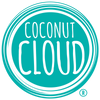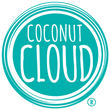A Deeper Look Into Coconut Cloud - An interview with owner Kerry Carlson

Since the beginning, Coconut Cloud has aimed to serve premium, delicious dairy-free and vegan coffee creamers, cocoas, and other coffee-related products. Although we know about how the company presents itself today, we wanted to take a deeper dive into its beginnings and how the company has been built from the ground up. CU Boulder student intern, Mitchell Maher did an interview with the founder and CEO of Coconut Cloud, Kerry Carlson, to discover how Coconut Cloud got its start and evolved into the company it is today. Read on below and discover more about this amazing brand…
(Mitchell): I’ve known Kerry for years, and she is one of the sweetest and most humble people I have met. Anyone who meets her would definitely agree with that. After a bit of introductory small talk, it was time to take a deeper dive into this business and brand. I first wanted to find out specifics about how the company started, including how Kerry began manufacturing the products, what sacrifices she had to make, and more.
M: To start, I wanted to know more about what your thought process was when you began to curate your brand - What truly inspired you to start up Coconut Cloud?
K: So, for me, my background is in food manufacturing. For twenty years, I had been making food products for other companies. Probably about five years ago, I decided to go dairy free - you know, I’m gluten free already - and I was just finding out that I don’t feel great on dairy. At the time, the only alternative was soy milk, and soy milk was kind of controversial. It acts as a phytoestrogen for women, so some women avoid processed soy. I remember being at a hotel with Starbucks coffee, and all that was available was soy milk. I thought to myself, “how has somebody not invented a dairy-free, all natural, dried coffee creamer on the go?” What most people don’t know is that most brand-name products (that claim to be dairy-free) actually have dairy in them. Even though they’re called “non dairy” creamers, they have a milk protein in it called sodium caseinate. In some people, this protein causes some people to have inflammation. So, I wanted a completely dairy-free and vegan creamer that I could travel with.
M: Awesome. So, knowing what inspired you to create your brand, what were some of the first steps you took in developing it? What came first in the creation process?
K: My first step was really trying to find a reliable supplier of bulk coconut milk powder before I did any recipe development. I was working with a company in Mexico, but their company culture was just too slow - being an entrepreneur, I like to get things done fairly quickly so I can move onto my next task. What I found out about our supplier in Mexico was that everyday I’d call and they’d constantly have a lack of updates about critical information, and so I was introduced to somebody who imports coconut milk from Thailand, and that’s how I got connected to my supplier.
M: What was the most difficult part of establishing your brand? How did you establish it in the first place?
K: The one that took the most time was finding the actual suppliers of ingredients. I then worked on artwork and I have a really great graphic designer and we were going back and forth with ideas, but I just said to him “hey, let’s meet in person and try to work this out.” Within an hour of meeting, we were able to get the logo designed. Next, selling a brand is challenging - you can do it yourself through Shopify and ship yourself when you’re small, but what I decided to do was start on Amazon without knowing anything about it. That was a lot of trial and error, figuring out how you promote it - Amazon really likes when you advertise your products as you get caught in the algorithm. So, I made a very small commitment - made just one palette of products - and shipped it to Amazon. It took off!
M: What would you consider to be the most important steps that you took to get to where you and the business are today?
K: So, it’s a little bit of a blessing and a curse, I will say. Typically, coming from a food manufacturing angle, I was able to build a supply chain. That to me was one of the best steps that I could take. Saying that, the other way of building a brand is to raise capital and build a team, and I didn’t choose that route. I chose the bootstrapping route - using my own money, and then growing the business in a fiscally responsible way. That’s why I’m still around four years later - you’ll see that many startups don’t have a good understanding of financials, and they have a negative monthly burn rate, and I never did that. I wanted to make sure I was fiscally responsible. The thing that I learned the most was that you should make sure to not go “too quickly” or “too early” financially.
M: What were some of the sacrifices made to be able to achieve the success you have acquired?
K: With any startup, I would say that the sheer amount of time and effort required to launch a business is a huge sacrifice. When I first started a brand I ended up getting a private label customer at the same time, meaning I made it under their name. I had to build a supply chain for 2500 supermarkets, and that was insane because it was so much work. It was a huge sacrifice, my time and effort.
(Mitchell): After getting a solid idea as to how the company started up, including the important steps and sacrifices made along the way, I wanted to learn more about how the products Coconut Cloud sells came to be…
M: What was the process you went through to create the recipes you’d eventually begin selling? What was the most strenuous part of that process?
K: So, with Coconut Milk, it’s not the creamiest of nut milks. Getting a creamy product was the biggest challenge I had. I started with creamers out of my own desire for dairy-free, on-the-go creamer. I then expanded into what I believed to be growing superfood markets, including Matcha and Turmeric. Those did well, so the following year I expanded into cocoas, because I was inspired by what I consider to be gaps in the marketplace. There’s a lot of kids with allergies, sugar is a major no-no for lots of moms, so I wanted to develop a lower sugar, allergy friendly cocoa that they would feel good about giving to their kids. To answer your question, I see a gap in the marketplace tied into my own desire for that type of beverage.
M: I’m curious about how you managed to bring your recipes from your home kitchen to a manufacturer. Was it a difficult process finding a manufacturer who was not only willing to produce your product, but also find one who did it in a vegan and dairy free environment?
K: It turns out that I lucked out - I’ve had a very long standing relationship with a co-packer in Denver who does my manufacturing for me, and they actually have a full research & design lab. My original creamer formulation came out of a food development company that was helping me with my private label business with Kroger supermarkets, and so we took that recipe and enhanced it at the research & design lab in Denver. Creating a gluten-free, dairy-free item, they have such strong quality control measures in place that it wasn’t that difficult meeting my quality parameters.
(Mitchell): The last thing I wanted to discuss with Kerry was about how the internal parts of the company, such as the employees who worked there, functioned. I wanted to know more about the company culture and how a regular day would look like for someone who works at Coconut Cloud.
M: After you began creating your brand, how and when did you decide who to bring on board for positions in marketing, management, etc? What did you look for in people who applied to these positions?
K: So, I have a very small team, and Lauren was my first hire. I knew Lauren from a previous venture and she went to CU Boulder. I knew I wanted someone very operationally strong, and so Lauren and I connected on LinkedIn, we met, she was unhappy at her corporate job, and I offered her a job at my company. My company culture is very casual and laid-back - as long as the work gets done and the results are there, I’m happy. There is complete flexibility. I don’t mind when anybody’s got something going on - we all have a life to live. I have a great work-life balance that I’ve worked very hard to achieve. My culture is work hard, but also have a very great work-life balance.
M: How do you ensure that your employees, suppliers, etc. keep their work consistent with Coconut Cloud’s purpose, culture, and overall message?
K: Well, that’s a constant state of monitoring daily. Lauren and I together make sure together that we are doing everything we can to make sure our customers are happy, our products are being delivered, the quality is good, and more. We taste test all of our products intermittently to make sure that the quality is always there. We have a customer service department, and want to make sure we’re always answering questions and responding to those who reach out to us. It’s a constant, daily process - I wake up every day thinking Coconut Cloud thoughts. I’m constantly creating things in Canva, and little inspirational things that I can put on Instagram or Facebook. It’s always in the background.
(Mitchell): It’s clear that Coconut Cloud means a lot to Kerry. Through this interview and my previous interactions with her, it is evident that she has the right intent and goals for her company, customers, and employees. By always ensuring the highest quality among all parts of the business, it’s no surprise that Coconut Cloud is a winning dairy free company!







